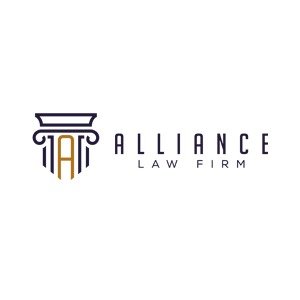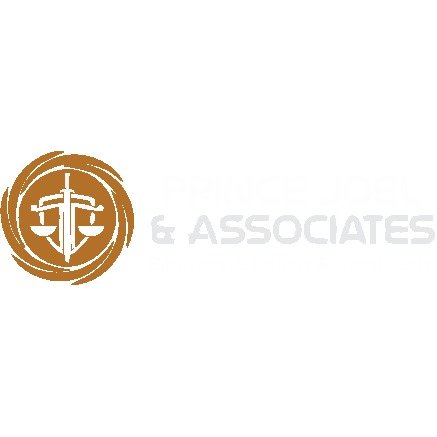Best ESG Advisory & Compliance Lawyers in Nigeria
Share your needs with us, get contacted by law firms.
Free. Takes 2 min.
Or refine your search by selecting a city:
List of the best lawyers in Nigeria
Legal guides written by Adeola Oyinlade & Co:
- Procedure and Requirements for Work Permit and Visas in Nigeria
- The Step-By-Step Procedure of How to Apply for Microfinance Bank License Online in Nigeria
- How to Ensure the Smooth Recognition and Enforcement of Foreign Judgments in Nigeria
About ESG Advisory & Compliance Law in Nigeria
Environmental, Social, and Governance (ESG) Advisory and Compliance has become a critical aspect of corporate operations in Nigeria. It involves integrating environmental stewardship, social responsibility, and sound governance principles into business activities to meet legal, regulatory, and stakeholder expectations. Nigerian companies and multinational organizations are increasingly expected to align with both local and international ESG standards, particularly as investors, regulators, and consumers demand greater accountability and transparency. ESG advisory services help businesses identify risks, capitalize on opportunities, and ensure full compliance with laws and best practices governing ESG issues.
Why You May Need a Lawyer
Navigating the complex framework of ESG regulations and voluntary standards in Nigeria can be challenging. Legal professionals with expertise in ESG advisory and compliance can provide indispensable support in the following situations:
- Drafting and implementing ESG policies and frameworks tailored to your organization
- Understanding and complying with local and international ESG-related laws and regulations
- Handling investigations and audits related to ESG issues
- Responding to enforcement actions or regulatory inquiries from Nigerian authorities
- Negotiating contracts that include ESG clauses or commitments
- Assisting with ESG reporting and disclosures to prevent legal or reputational risks
- Managing disputes or litigation arising from ESG non-compliance
- Assessing ESG risks and opportunities in mergers, acquisitions, or investments
- Obtaining necessary environmental permits or social impact assessments for development projects
- Training management and staff on ESG legal requirements and best practices
Local Laws Overview
ESG compliance in Nigeria is guided by a mix of statutory laws, regulatory guidelines, and voluntary standards. Key laws and regulations include:
- The Nigerian Constitution, which enshrines environmental protection and social rights
- The Environmental Impact Assessment Act, which mandates EIAs for major projects
- The Nigerian Stock Exchange (NSE) Sustainability Disclosure Guidelines, requiring listed companies to report on ESG matters
- National Environmental Standards and Regulations Enforcement Agency (NESREA) Act, which establishes compliance standards for environmental protection
- The Companies and Allied Matters Act (CAMA) 2020, which includes provisions on corporate governance and director responsibilities
- Industry-specific laws regulating waste management, pollution control, and occupational health and safety
- Central Bank of Nigeria (CBN) Sustainable Banking Principles, for financial institutions
- The Nigerian Data Protection Regulation (NDPR), which covers aspects of governance and social responsibility regarding personal data protection
In Nigeria, ESG regulations continue to evolve, and authorities expect businesses to keep up with both mandatory requirements and international best practices. This landscape makes legal guidance especially important.
Frequently Asked Questions
What is ESG advisory and compliance?
ESG advisory and compliance refers to professional guidance and legal support to help organizations meet environmental, social, and governance standards required by law or expected by stakeholders.
Are ESG disclosures mandatory for Nigerian companies?
Certain ESG disclosures are mandatory for publicly listed companies based on Nigerian Stock Exchange regulations, and additional sector-specific requirements may apply to industries such as banking and oil and gas.
Who regulates ESG compliance in Nigeria?
Several authorities regulate ESG compliance, including the Nigerian Stock Exchange, NESREA, CBN, the Corporate Affairs Commission, and ministry departments overseeing environmental and social issues.
Does my small business need an ESG framework?
While not all small businesses face mandatory ESG disclosure, having an ESG framework can improve access to finance, stakeholder relations, and market opportunities, especially when dealing with international partners.
What are the consequences of ESG non-compliance in Nigeria?
Non-compliance can result in regulatory sanctions, fines, reputational harm, legal liability, suspension from stock exchanges, and loss of investor confidence.
How do I prepare an ESG report for my company?
Preparing an ESG report involves assessing your company's impact and procedures, collecting data on relevant metrics, following reporting standards, and ensuring transparency and accuracy. Legal advice can help in meeting regulatory and stakeholder expectations.
Are there international ESG standards recognized in Nigeria?
Yes, many Nigerian regulators and investors encourage or recognize international frameworks such as the Global Reporting Initiative (GRI), United Nations Sustainable Development Goals (SDGs), and the International Sustainability Standards Board (ISSB).
Can ESG issues influence business investments in Nigeria?
Absolutely. Investors increasingly review ESG performance before investing, and strong ESG practices are linked to lower risks and improved access to capital.
What is the role of lawyers in ESG compliance?
Lawyers help in interpreting and applying ESG laws, ensuring legal compliance, managing disclosures, training staff, handling disputes, and providing advisory services on emerging issues.
How often do ESG regulations change in Nigeria?
ESG regulations are evolving rapidly as global standards shift and local authorities strengthen enforcement. Regular legal updates and reviews are necessary to stay compliant.
Additional Resources
Below are some organizations and governmental bodies that provide guidance and resources for ESG Advisory and Compliance in Nigeria:
- Nigerian Stock Exchange (NSE) - for sustainability disclosure guidelines
- National Environmental Standards and Regulations Enforcement Agency (NESREA) - for environmental compliance standards
- Corporate Affairs Commission (CAC) - for corporate governance requirements
- Federal Ministry of Environment - for environmental protection initiatives
- Central Bank of Nigeria (CBN) - for sustainable banking principles
- Professional bodies such as the Nigerian Bar Association (NBA) and Institute of Directors (IoD) Nigeria
- Global organizations with local representation such as UN Global Compact Network Nigeria and Global Reporting Initiative (GRI) Africa Hub
Next Steps
If you require legal assistance with ESG advisory and compliance in Nigeria, consider the following steps:
- Assess your current ESG needs and objectives for your organization
- Identify law firms or legal practitioners with proven expertise in ESG matters
- Prepare documentation regarding your organization's operations and any existing ESG frameworks
- Schedule a consultation to discuss your needs and expectations with a lawyer
- Stay engaged with new developments in the ESG legal landscape to ensure ongoing compliance
- Participate in ESG training or capacity building programs tailored to your industry
Taking these steps will help you position your business for growth, compliance, and sustainability in the ever-evolving ESG environment in Nigeria.
Lawzana helps you find the best lawyers and law firms in Nigeria through a curated and pre-screened list of qualified legal professionals. Our platform offers rankings and detailed profiles of attorneys and law firms, allowing you to compare based on practice areas, including ESG Advisory & Compliance, experience, and client feedback.
Each profile includes a description of the firm's areas of practice, client reviews, team members and partners, year of establishment, spoken languages, office locations, contact information, social media presence, and any published articles or resources. Most firms on our platform speak English and are experienced in both local and international legal matters.
Get a quote from top-rated law firms in Nigeria — quickly, securely, and without unnecessary hassle.
Disclaimer:
The information provided on this page is for general informational purposes only and does not constitute legal advice. While we strive to ensure the accuracy and relevance of the content, legal information may change over time, and interpretations of the law can vary. You should always consult with a qualified legal professional for advice specific to your situation.
We disclaim all liability for actions taken or not taken based on the content of this page. If you believe any information is incorrect or outdated, please contact us, and we will review and update it where appropriate.
Browse esg advisory & compliance law firms by city in Nigeria
Refine your search by selecting a city.

















